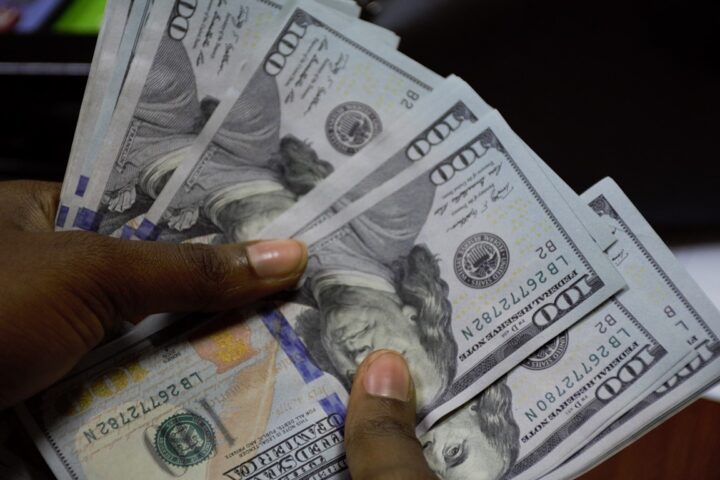Agusto Consulting Limited, a credit rating agency, says diaspora remittances to Nigeria will increase by five percent to $22 billion in 2021.
Jimi Ogbobine, the organisation’s head of consulting, disclosed this on Tuesday, during presentation of the report and survey on Nigeria’s diaspora remittance for 2021.
Following the impact of COVID-19 which led to a decline in crude oil prices, attention has shifted to diaspora remittance — Nigeria’s second largest source of foreign exchange inflows.
The report noted that in the last five years, Nigeria received its highest diaspora remittance in 2018 with about $24 billion.
Advertisement
In 2019 the figures dipped by two percent to $23.8 billion while in 2020, a double digit drop of 12 percent was recorded as diaspora remittances fell to $21 billion.
“By the end of 2021, we are projecting a 5% growth from $21 billion to $22 billion this year. And by 2022, we are projecting another small growth of about 2% to $22.5 billion,” Ogbobine said.
Citing growth drivers for the projection, the firm said increase in emigration of white-collar workers particularly to Canada, the United Kingdom and Australia will increase diaspora remittances.
Advertisement
It added that the Central Bank of Nigeria (CBN) will “maintain its current policy all through 2021 and into 2022 which requires IMTOs to pay beneficiaries in foreign currency and not in naira”.
NIGERIA IS WORST DIASPORA REMITTANCE RECIPIENT AMONG TOP 7 AFRICAN COUNTRIES IN 2020
According to the Agusto report, Nigeria recorded the worst dip in remittances among top seven countries with highest diaspora receipts in Africa.
The six other African countries were identified as Egypt, Morocco, Ghana, Kenya, Senegal and Zimbabwe.
Advertisement
The firm said progress will be made in 2021 as four major factors will lead to favourably outcomes on remittances.
It identified the factors as “CBN’s decision to enable recipients of remittances access to funds in foreign currency” and “currency depreciation in Nigeria”.
Others include “fiscal stimulus package aimed at protecting wages and consumer spending in some of the major western nations”, as well as the “increasing rate of emigration by well-educated Nigerians”.
CBN’S NAIRA FOR DOLLAR SCHEME ‘NOT A GAME CHANGER’
Advertisement
As part of efforts to drive inflow, the CBN had introduced the “Naira 4 Dollar Scheme” — an incentive for senders and recipients of international money transfers.
The scheme which commenced on March 8 was initially scheduled to end on May 8. But a week ago, the apex bank extended the scheme indefinitely.
Advertisement
In November 2020, CBN also announced that beneficiaries of diaspora remittances through the international monetary transfer operators (IMTO) will have such inflows in foreign currency (US dollar) through the designated bank of their choice.
Responding to a question from TheCable on the impact of the “Naira for Dollar” scheme, Ogbobine said the CBN initiative will have no major impact.
Advertisement
Also speaking on the effect of cryptocurrencies, Ogbobine said efforts must be made to ensure easy remittance in and out of Nigeria, he said “if not, cryptocurrencies will provide the answers”.
“We did look at how much on the average people were remitting per installment and we got the dollar amount to be around $500 which is not really a game changer in our opinion,” he said.
Advertisement
“So for the survey and focus group discussions we had with Nigerians in diaspora, we believe that it doesn’t change the big picture. What changes the big picture is being able to collect foreign currencies here in Nigeria.
“Recall that this is not the first time Nigeria is having this policy. We had this policy before and at some point we aborted it and we are now revisiting the policy. So the important thing is how sustainable it is, which is why for our prediction, we have hinged immaterially on that policy.”






